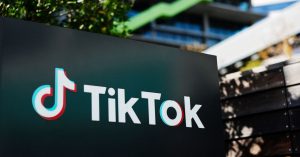Executives believe nearly half of the skills that exist in today’s workforce won’t be relevant just two years from now, thanks to artificial intelligence. And a lot of that includes their own skills. This startling proclamation came out of a recent survey of 800 executives and 800 employees released by edX, an online education platform.
The executives estimate that nearly half (49%) of the skills that exist in their workforce today won’t be relevant in 2025. The same number, 47%, believe their workforces are unprepared for the future workplace. Identifying skills shortages is not a surprising result to come out of an educational platform provider, but the short timespan is an eye-opener.
Executives in the survey estimate that within the next five years, their organization will eliminate over half (56%) of entry-level knowledge worker roles because of AI. What’s more, 79% of the C-Suite predict that entry-level knowledge worker jobs will no longer exist as AI creates an entirely new suite of roles for employees entering the workforce.
However, there are industry leaders who are skeptical of such heavy-handed doom-laden predictions. “In my view, the immediate impact of AI on career goals is likely to be minimal,” says Richard Jefts, executive vice president and general manager at HCL Software. “While many companies claim to be leveraging AI, the reality is that most are still in the early stages of adoption.” Expect more of a longer-term impact on careers as AI matures, he says.
While AI will redirect jobs and career prospects, its impact on jobs and tasks is murky — it’s not a simple matter of swapping out tasks with AI and you’re done. “The challenging part is that it is very difficult to predict precisely where and when that redirection will occur,” says Frederico Braga, head of digital at Debiopharm. “Almost every professional whose day to day is somehow connected with a digital activity will need to re-adjust their career goals as they — and the people around them — will begin to see changes in their daily work-related activities and processes.”
In some cases, redirection may not even be required. “Rather than re-directing your core skills, one very valuable career skill to develop is figuring out how to use emerging AI tools and technologies as a booster to make your strengths even stronger,” says Jonathan Martin, president at WEKA. “One question to ask is how you can leverage AI to become incrementally better at what you already do best.”
AI will see its value as augmented — not artificial — intelligence, observes Vittorio Cretella, CIO of Procter and Gamble. “Most successful applications of AI will amplify human skills, not simply substitute, or replace them,” he says. “Where humans will continue to make a difference is the problem definition phase – decomposing a problem through key questions and identifying patterns before attempting to define an algorithmic solution.”
The edX survey, on the other hand, suggests even the highest-level decision-makers are concerned about their tasks being absorbed into AI. And here’s a real eye-opener: 47% of C-Suite executives believe “most” or “all” of the CEO role should be completely automated or replaced by AI — and even 49% of CEOs themselves agree.
While AI may replace human decision-making at some levels, running organizations require certain enduring qualities only humans can bring to the table. “Leaders, individuals with curiosity, and those with recognizable team engagement skills will remain in high demand,” says Jefts. “Finding leaders and individuals with strong soft skills is a greater challenge that generative AI cannot accomplish.”
As AI evolves, skills that will become more important will include “critical thinking, logical intelligence, interpersonal and intrapersonal intelligence, and structured planning and organization,” Braga says. “Skills that will be less and less in demand as AI becomes more ingrained in daily work activities will include repetitive tasks, analysis and interpretation activities, and content generation.”
The edX survey authors concur that while AI will sweep away many tasks, it will also boost executives’ effectiveness “and free up their time for more important business activities. Beyond handling simple tasks like preparing executive communications, AI could also come up with ideas for new markets, products, or business models. These technologies could also assist with planning and forecasting, and they could support data-driven decision-making.”
To that end, the survey shows that 92% of executives feel it’s important to improve their AI skills within the next one to two years, and the same percentage are already using AI in their roles. Close to eight in ten executives, 79%, of executives fear that if they don’t learn how to use AI, they’ll be unprepared for the future of work.“ While most executives feel optimistic about how AI will impact them, some feel overwhelmed by the pace of change,” the survey authors add.
Being familiar with AI and its capabilities “will enable business professionals to leverage its potential, particularly in areas such as HR, sales, and support,” Jeft agrees. “In the coming months and years, the types of roles or professionals most impacted by AI will primarily be senior IT leaders who need to understand the technology.”
Still, Martin believes, “there will always be a role for the creative mind and the strategic thinker, no matter what. Great ideas and game-changing innovation will still require people to have lightbulb moments and ambitious visions for how to execute. Even as generative AI apps get increasingly advanced, someone will still need to develop prompts, curate the results, and determine how the output will be used.”
The creativity required for problem-solving “is also a hugely underrated career skill in any industry,” Martin adds. “Undoubtedly, obstacles will pop up throughout your career. Big or small, human creativity, agility, and tenacity will be required to address them masterfully. This is one area where years of real-world experience may be difficult to replace with AI.”
Read the full article here








